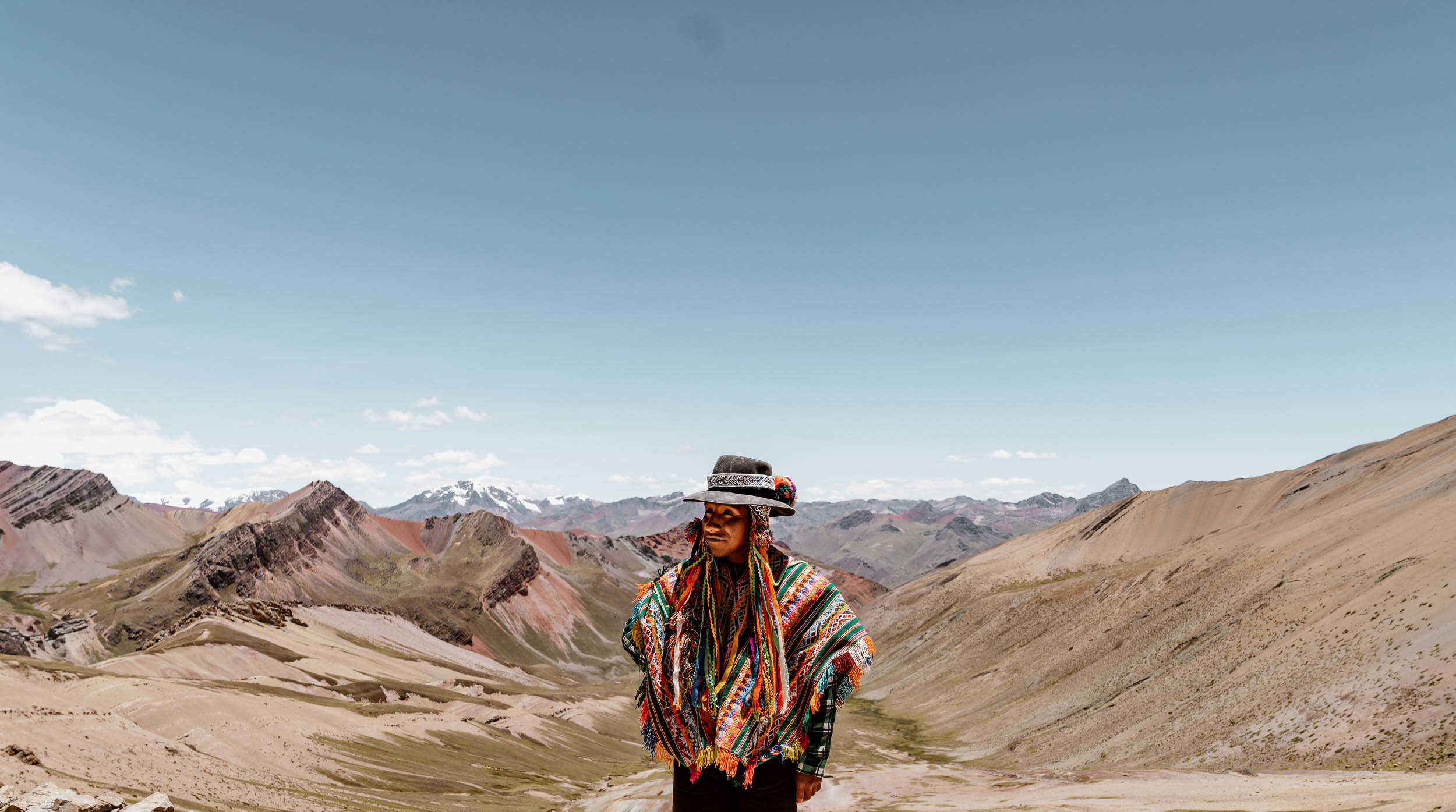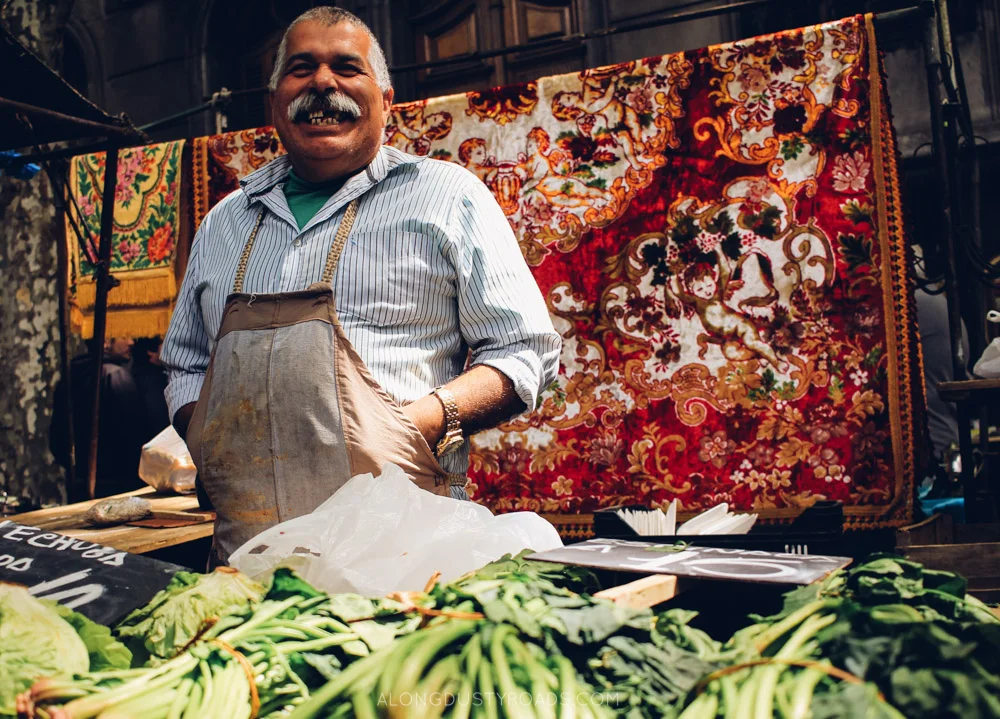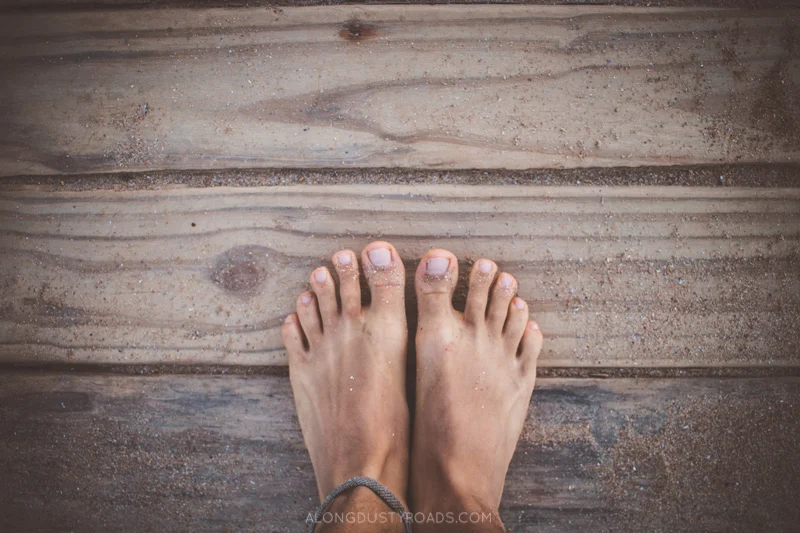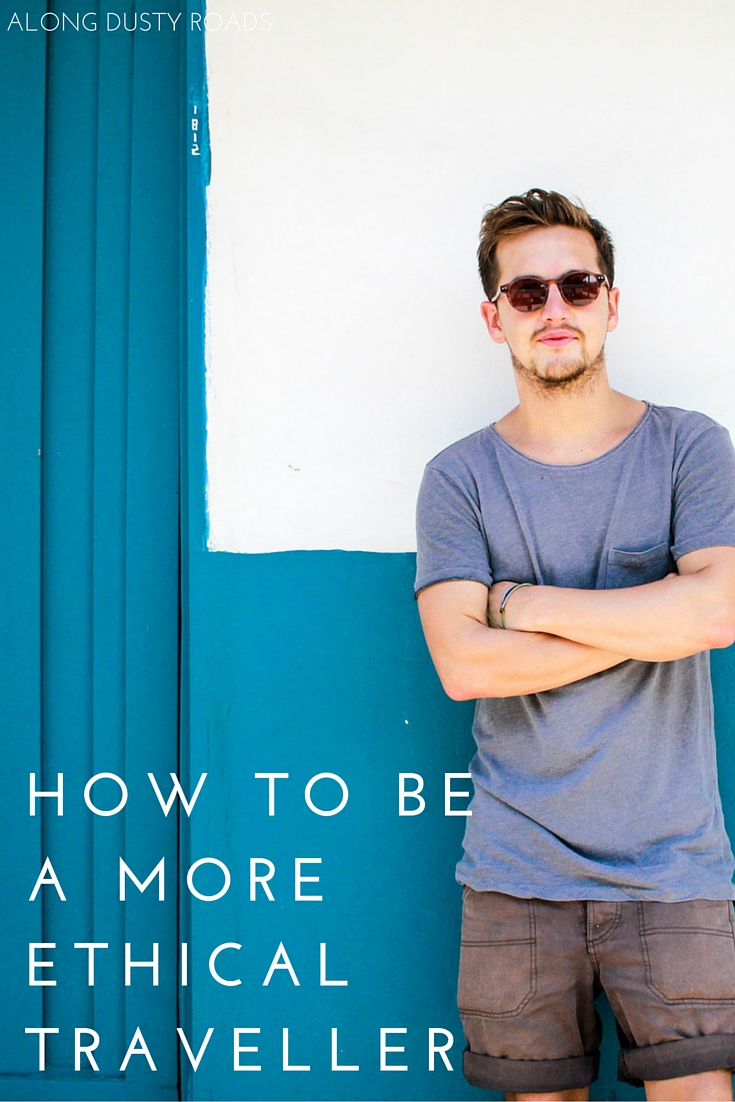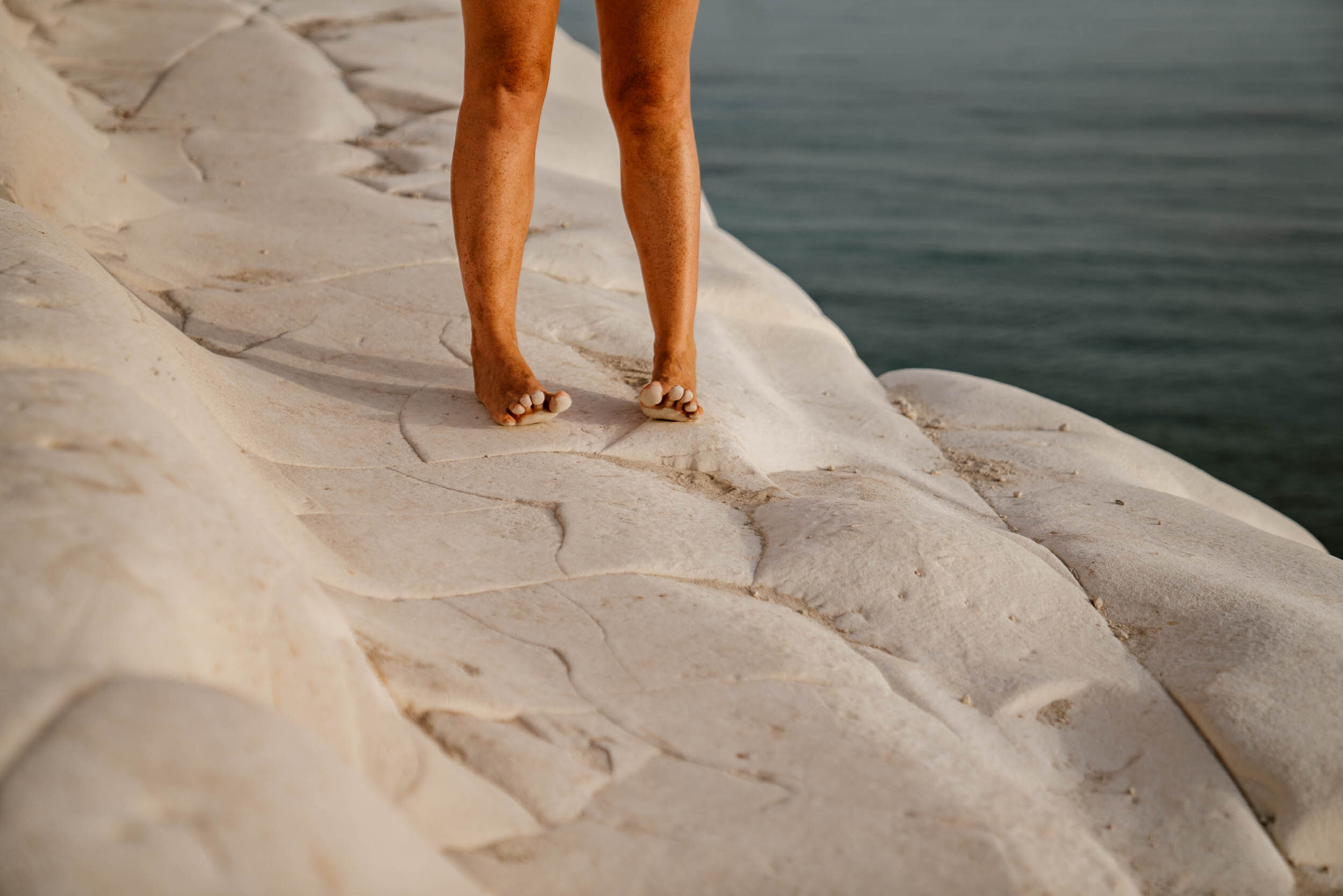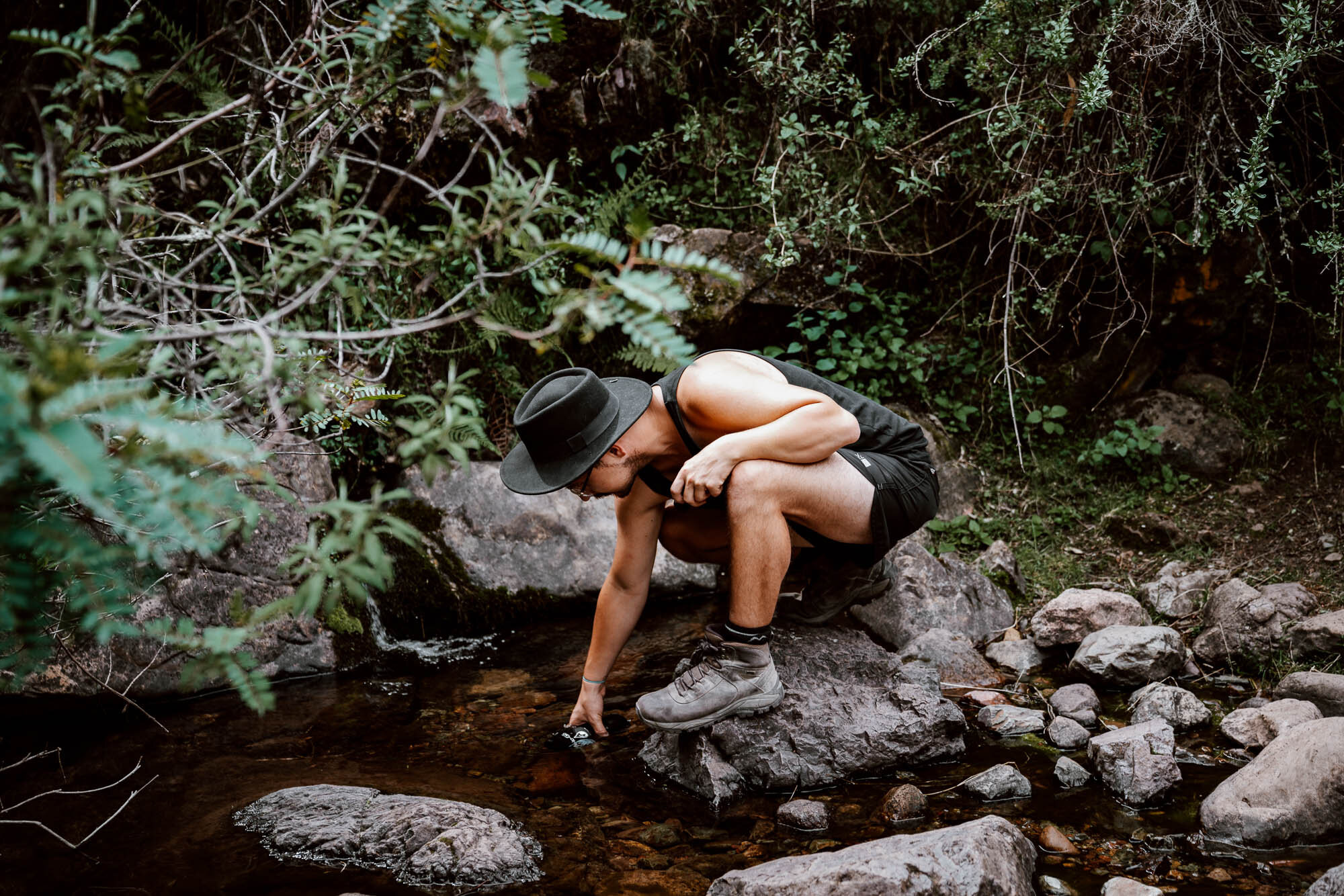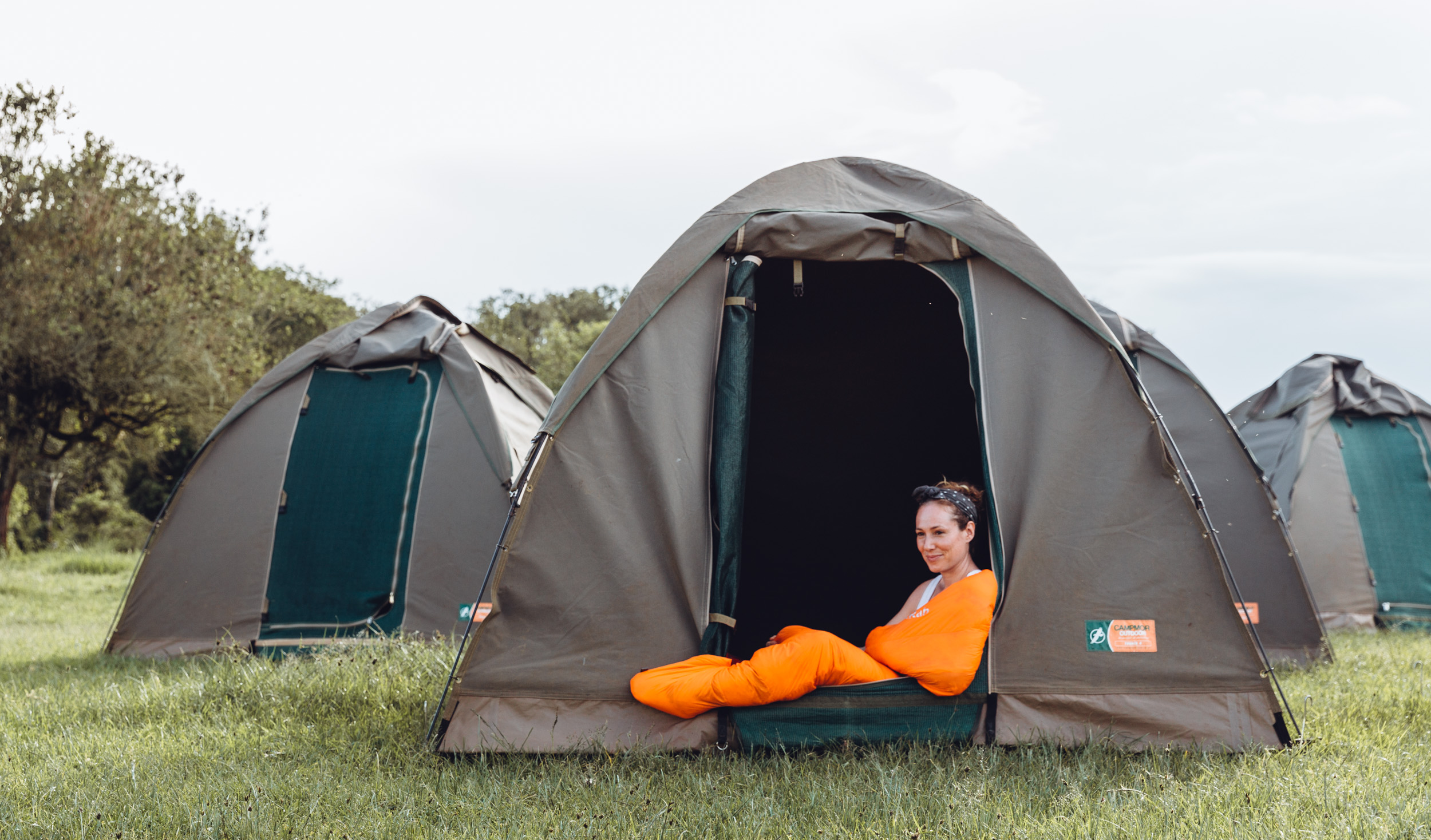We've both made mistakes on trips.
We've paid good money for things which turned out to be overcooked tourist traps. We've picked a tour which took us to a place where animals were cruelly mistreated fodder. We've been those drunken idiots running down the street at 4 a.m.
But now, we travel in a way which is more respectful, more aware and more meaningful. It is not about feeling like a superior or smug traveller, and it's not even about now being closer to 30 than 20, but rather it's about travelling in the best way we can.
In a way which causes the least harm to those people we meet along the way and tries to do a bit of good in the process.
And you know the best thing? Travelling like that isn't the dull or mundane option. Rather, it gives us both a sense of more genuine happiness, opens up doors to beautiful authentic experiences and, sometimes, allows us to feel like we're helping.
So, whatever your travel tribe, whatever your budget, whatever your background and wherever you go - adopt these five simple approaches into your travel style to become a more ethical, and happier, traveller!
#1 go beyond the guidebook
When planning for the next big trip, it's easy to focus your reading exclusively those '10 Places You Can't Miss' lists or guides to the best bars and clubs, getting all excited scrolling through relevant hashtags on instagram or discovering which local dishes you simply have to try. That's a huge part of why we all travel and for good reason; the vast majority of us want our money and precious vacation time to be directed at giving us the most fun or most memorable experiences.
However, taking the time to learn and understand more about the place you're visiting on a more educational level is incredibly worthwhile.
Before your visit, spend a few evenings reading about the history of a country, the current socio-political situation, the big stories in the national or foreign press. Is there a poet or author who you should be reading? Are there any documentaries on youtube or critically acclaimed films?
The more you read and learn about the place you're visiting, the easier it is to connect the dots when you're actually there. You will have context to what you're seeing and experiencing, better understand the differences between certain cities or regions and appreciate why everyone hates this certain politician or why there are protests in the street. Locals absolutely love when you know a little about their country's past or the names of some key figures - and fostering your own knowledge helps to remove linguistic or cultural barriers between you and them, as well as giving you a better experience when travelling the country.
Taking this approach removes our ignorance as travellers and bestows the necessary respect upon the nation hosting and welcoming you for a few weeks or months.
#2 buy direct from the market and support local business
When we're on a long term trip, we absolutely adore finding brands from home in the supermarket. Most of our treats would be things like Oreos or Skittles - flavours we recognise and which you can pick up anywhere in the world (damn you Haribo Tangfastics!!). They do cost more than other items but little treats like that are hugely important when you're on the road.
However, the vast majority of our spending in Latin America would be at the local market. Spending more time and money in these places - where most of the produce is locally sourced - is not only more valuable for your travel experience in terms of 'living like a local', but it's also hugely important in terms of putting your money where it can have the most impact.
There's nothing wrong with spending some of your money at a supermarket - they create and support a lot of jobs in the local economy. However, in places like Bolivia or Vietnam, buying your fruit, veg and other ingredients at the local market is only one or two steps removed from buying directly from the poor, hard-working farmer in the countryside (and sometimes it's actually a direct transaction with them). Therefore, directing most of your trade to these small street or market stalls means you know the the majority of the money you spend is going straight into the pocket of those who have worked hard for it.
The same approach goes for eating out. Try to avoid chains or franchises like Subway and Starbucks as much as possible (unless you're hankering for that 'tastes like home' splurge) and invest directly in a new experience by eating at a locally run place. It's usually cheaper, often has much nicer food and may even lead to a unique experience or interaction.
It's incredible how globalised and homogenised the world has become in some areas, but travel should still be about trying to expose yourself to new flavours, places and ways of being - rather than simply seeking out that which reminds you of home and keeping ourselves in a little bubble; tourists go to McDonald's, ethical travellers go to the little ma n' pa place two doors down.
#3 leave only footprints (and clean up other people's)
Travelling through the dusty, dry desert heat in the back of a pick-up truck through most northern reaches of Colombia was an unforgettable travel experience. However, one of our most vivid memories of driving through a pristine desert scene was passing by a cactus patch, where every thorn had caught hold of a small coloured plastic bag.
There were thousands of them.
Large swathes of Latin America have a huge litter problem, and we know that a number of other countries around the world suffer from a similar ill. Take any bus ride and nobody will keep their plastic bottles, dirty nappies or sweet wrappers on their person for disposal afterwards - instead, they're swiftly chucked out of the window. Recycling is nowhere to be seen on the development agenda and, although there are some signs discouraging throwing rubbish, it will take a generation or two before there is a significant change in behaviours.
Back in the same part of Colombia, on a most beautiful beach, we were both shocked at what people - whole families - left behind on the sand and in the sea. So, we set about picking up a lot of it on our own. We didn't want to do it, but we just felt sick seeing the disregard for nature and our shared surroundings.
We adopted that practice in a lot of other places. On beautiful nature trails, atop volcanoes and next to lakes - we made sure we never left any trash and picked up a fair bit of what other people had left behind and disposed of it responsibly.
Despite this, we both still feel sick at the amount of plastic we consumed throughout our two years in Latin America. Very very few places had safe drinking water and neither of us had packed the correct equipment to drink water sustainably, so the easiest option was to buy plastic bottles of water wherever we went. It was so so wasteful and we can now fully understand how over 50 BILLION plastic bottles of water are consumed every year.
In hindsight, a great solution would have been to pack in a more prepared way. On future trips, we'll be bringing a LifeStraw (a bottle with a built-in filter which makes contaminated water safe to drink), will always have a cloth bag with us so we don't need shopping bags and will be much more prepared so we can cut down on our plastic waste (like taking our refillable water bottle)- we hope you will too!
Read more about how we now use less plastic when we travel (and you can too).
#4 pick the right sort of tour
We've all made the mistake of dreaming about a place or an experience whilst we're still at home, only to be massively let down by the reality. Packed and bustled into a shuttle van alongside twenty other gringos to go and join another dozen groups at a place which, once upon a time, really would have been magical, but has instead been turned into an inauthentic tourist trap where how much you spend and how many selfies you take is all that matters. It's a big reason why we walked 29 kms to Machu Picchu instead of going on the tourist train - for at least a few hours we wanted to feel as though this was still a magical place.
It's because of the proliferation of the biggest tourist attractions often letting you down which means doing your own research prior to booking any tour is essential.
Looking up the thoughts of others on Trip Advisor and googling to see if there are any horror stories is one part, but to be a more ethical traveller, you have to go further. Consider booking tours which directly support and benefit the local community and promote sustainable, non-exploitative practices. Find out if they invest their profits back into education programmes or other local causes. Book with organisations which connect travellers looking for small, sustainable, community based tours or activities in a number of countries directly with the local nonprofits that stick to the above principles, and provide engaging and immersive experiences. G Adventures, for example, now show the social and economic impact of their tours and activities on the local community via a Ripple Score out of 100.
As well as helping out the people involved, taking the time to support ethical tour companies allows you to discover aspects of culture which aren't available, or presented in an authentic manner, on large scale group outings where you are one of hundreds of other tourists.
#5 avoid animal exploitation
We cannot hide the anger that builds up inside us when we see another photo on Instagram of someone posing next to a doped-up tiger in Thailand, or smiling atop an elephant which has been beaten and tortured into a submissive husk of an animal which lets tourists ride them for money. And don't get us started on Seaworld.
But that's unfortunately just the tip of the iceberg.
The tourism industry, on the whole, treats animals horrendously. It captures them, cages them and beats them so that people will flock to pose for funny or 'cute' pictures. And, unfortunately, we've witnessed with our own eyes how large groups of travellers of all nationalities and backgrounds unfortunately act so stupidly when together, that any sense of respect for animals goes out the window. If you don't know what we're talking about, then check out the horrific scenes which stopped turtles from nesting in Costa Rica or the baby dolphin death in Argentina. We promise you, acting like that around an innocent wild animal is the norm for many, rather than the exception, and the level of ignorance about the trade around it is deep-rooted.
So, adhere to our golden rules for interacting with animals when on the road:
- If an animal is involved in anything, it usually means that the 'attraction' should be avoided. We're including zoos in general in this (although we do recognise that a few around the world do important conservation and awareness work).
- If you see animals in the wild, watch from a safe distance and don't touch or disturb them. Don't try and feed them or encourage them to pose with you. Don't use flash photography, be respectful of their space and don't be afraid about being 'that guy/girl' who shouts at people who are disturbing the animal.
- Do your research and visit ethical alternatives and rescue centres. These places are doing excellent work to help these animals have a second chance at a peaceful and safe life and deserve support.
If you'd like to know more, then World Animal Protection offer excellent resources on animal friendly travel as well listing the ten cruellest animal attractions (which are unfortunately still some of the most popular with tourists).
Of course, not everything you or we do on our travels will be perfect. Every interaction won't leave each party satisfied or content. Not every day will be a day where you can make a difference or even feel like doing anything remotely foreign or inquisitive. And there will be tough, competing choices to make about whether your actions are helping or hindering the people you meet (i.e. giving money to street kids).
The right decision won't always be easy, and we won't always make it.
But the important theme underpinning all of these steps is that knowledge, research and awareness are essential for becoming a more ethical, more responsible traveller. And, once you've educated yourself, don't be scared to share that knowledge and awareness with others that you meet along the road.
For us, we've definitely crossed a threshold in terms of being embarrassed about telling people that posing with tigers isn't cool or that being in a foreign land and not trying to connect with or, at least, understand what's going on outside of gringo bars and hostels is a bit, well, stupid. If you don't spread the word amongst other travellers you meet in a respectful manner, then things will never improve.
By including these simple steps into the way you travel, spreading the word and not being scared of pointing out bad practices or enlightening other travellers about actions or attractions which aren't ethical; they will thank you in the long run. Through you and your actions, the travel community and trade can become more enlightened, more impactful and a much better place.
